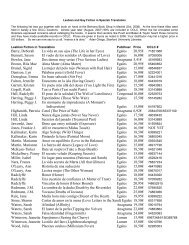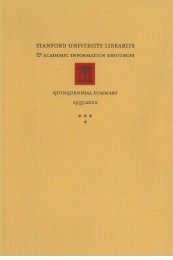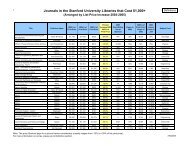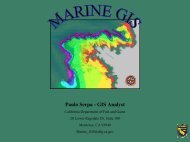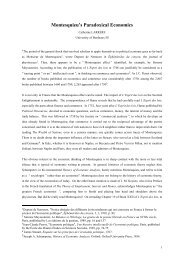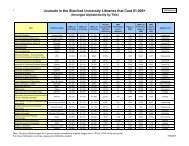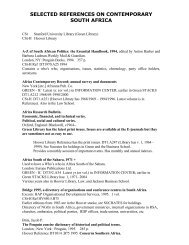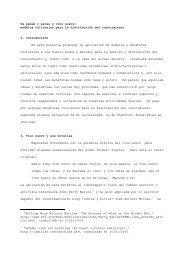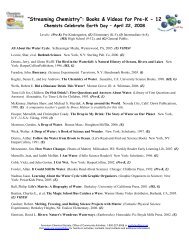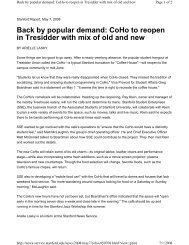The Abbé de Saint-Pierre and the Emergence of the 'Quantifying ...
The Abbé de Saint-Pierre and the Emergence of the 'Quantifying ...
The Abbé de Saint-Pierre and the Emergence of the 'Quantifying ...
You also want an ePaper? Increase the reach of your titles
YUMPU automatically turns print PDFs into web optimized ePapers that Google loves.
Abbé <strong>Saint</strong>-<strong>Pierre</strong> <strong>and</strong> <strong>the</strong> “Quantifying Spirit” 16<br />
for a revolution whereby <strong>the</strong> reign <strong>of</strong> priests <strong>and</strong> superstition would be replaced by <strong>the</strong> reign <strong>of</strong><br />
science <strong>and</strong> facts. Here <strong>Saint</strong>-<strong>Pierre</strong> frames his own approach to political science in similar<br />
terms, calling for an escape from ignorance <strong>and</strong> barbarism <strong>and</strong> movement into Enlightenment.<br />
Key to this revolution for him is a new imperative toward attentive observation, disciplined<br />
record-keeping, <strong>and</strong> scrupulous restraint from speculation. Baconian science was insistent that<br />
<strong>the</strong> production <strong>of</strong> reliable knowledge <strong>de</strong>pen<strong>de</strong>d first <strong>and</strong> foremost on <strong>the</strong> prior production <strong>of</strong> a<br />
reliable archive <strong>of</strong> facts, <strong>and</strong> <strong>Saint</strong>-<strong>Pierre</strong> likewise conceives <strong>of</strong> his political science as built upon<br />
<strong>the</strong> same foundation.<br />
By framing <strong>the</strong> epistemology <strong>of</strong> his political science in <strong>the</strong>se terms, <strong>Saint</strong>-<strong>Pierre</strong> was<br />
echoing <strong>the</strong> larger epistemological assumptions <strong>of</strong> <strong>the</strong> new empirical physics. He was also<br />
following in <strong>the</strong> footsteps <strong>of</strong> a previous generation <strong>of</strong> political thinkers who had likewise seen in<br />
Baconianism a new framework for mo<strong>de</strong>rnizing <strong>the</strong> practice <strong>of</strong> statecraft. In France, <strong>the</strong> ministry<br />
<strong>of</strong> Jean-Baptiste Colbert which began in 1661 was noteworthy for its attempt to make factga<strong>the</strong>ring<br />
a fundamental practice <strong>of</strong> state. It was Colbert who sponsored <strong>the</strong> creation <strong>of</strong> <strong>the</strong> Royal<br />
Aca<strong>de</strong>my <strong>of</strong> Sciences in 1666, <strong>and</strong> even if <strong>the</strong> institution was never <strong>the</strong> pure corps <strong>of</strong> utilitarian<br />
state servants that <strong>the</strong> minister hoped for, it was an important cog in <strong>the</strong> minister’s practice <strong>of</strong><br />
scientific statecraft. <strong>The</strong> Royal Observatory foun<strong>de</strong>d in 1673 was similarly conceived to foster<br />
<strong>the</strong> accumulation <strong>of</strong> utilitarian astronomical data for such state projects as navigation, mapmaking,<br />
<strong>and</strong> civil engineering projects like roads, canals, <strong>and</strong> bridges. O<strong>the</strong>r Colbertian projects,<br />
such as his new population censuses or his attempts to rationally scrutinize <strong>the</strong> fiscal <strong>and</strong> legal<br />
systems, also speak to his interest in reforming monarchy through a reorientation toward <strong>the</strong><br />
accumulation <strong>and</strong> application <strong>of</strong> scientific facts. 38



